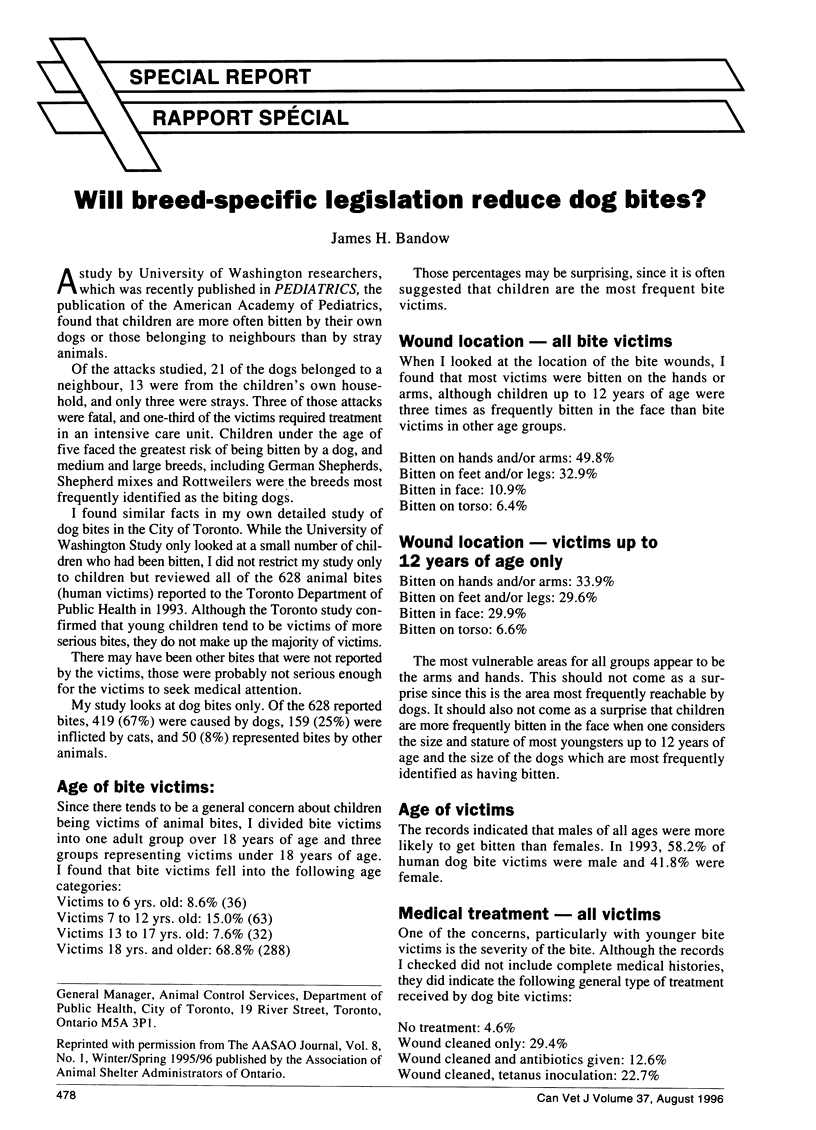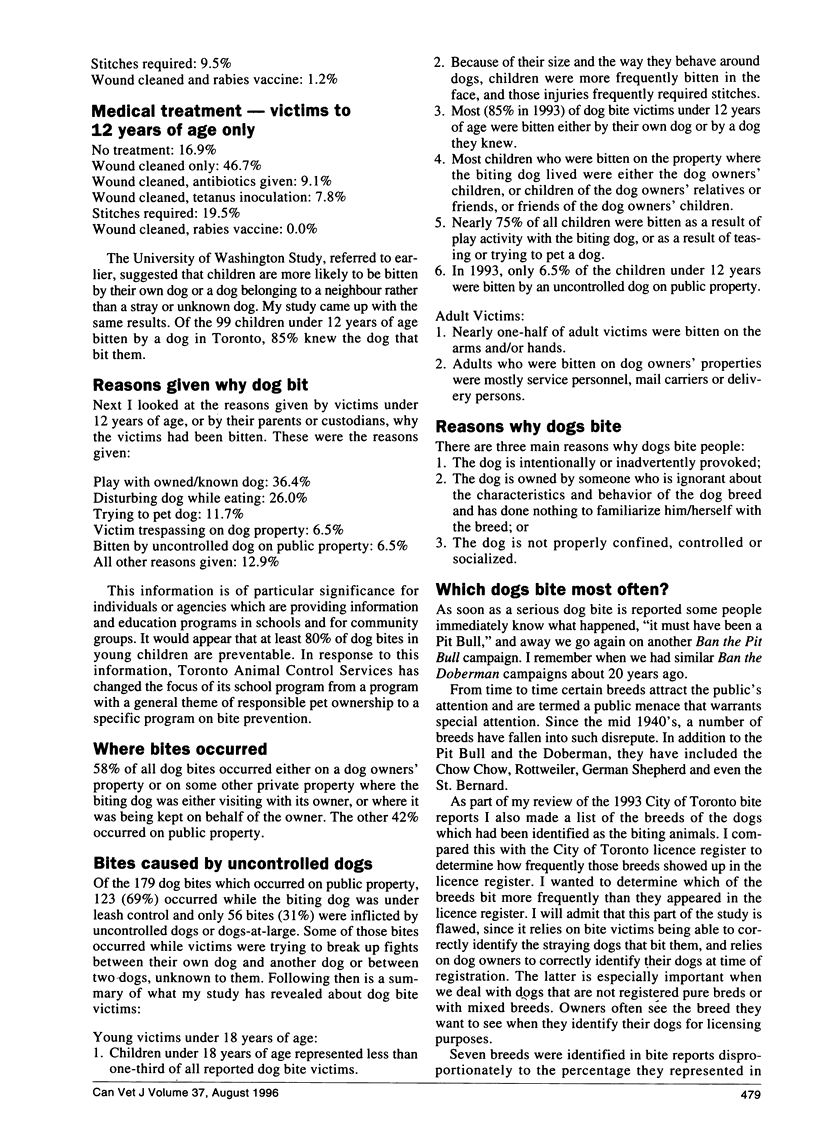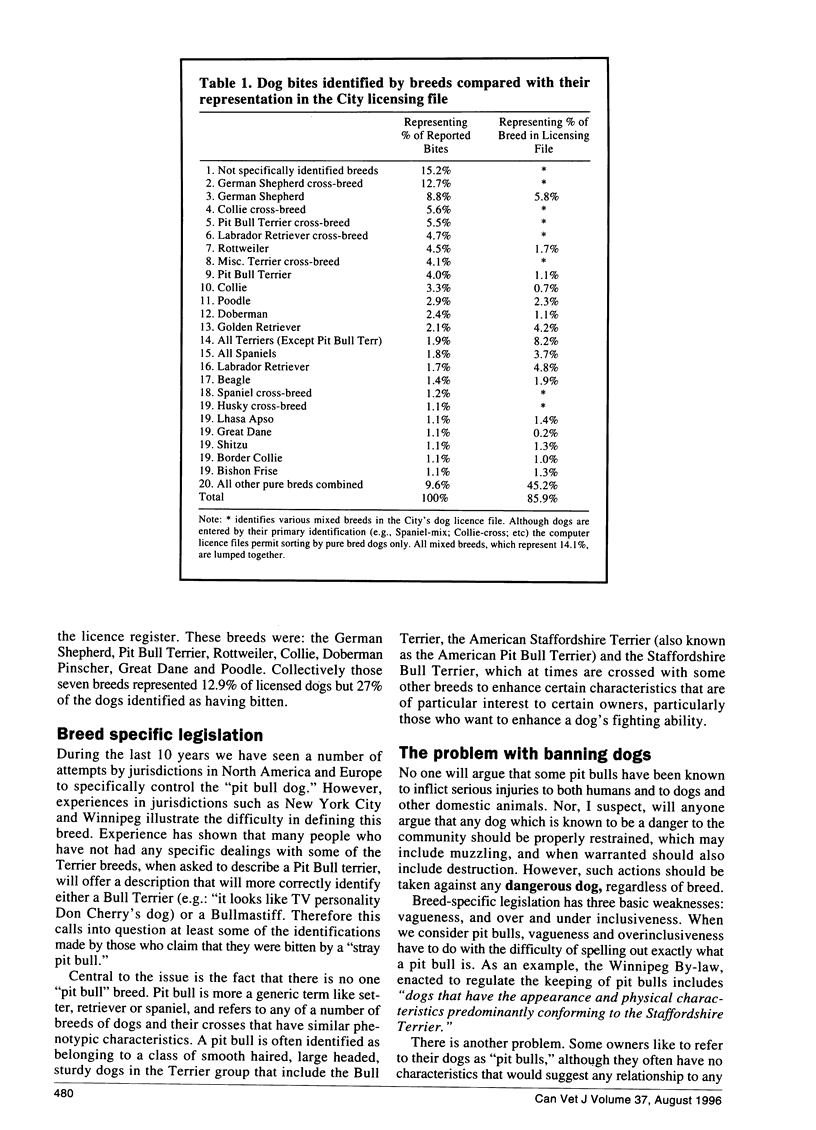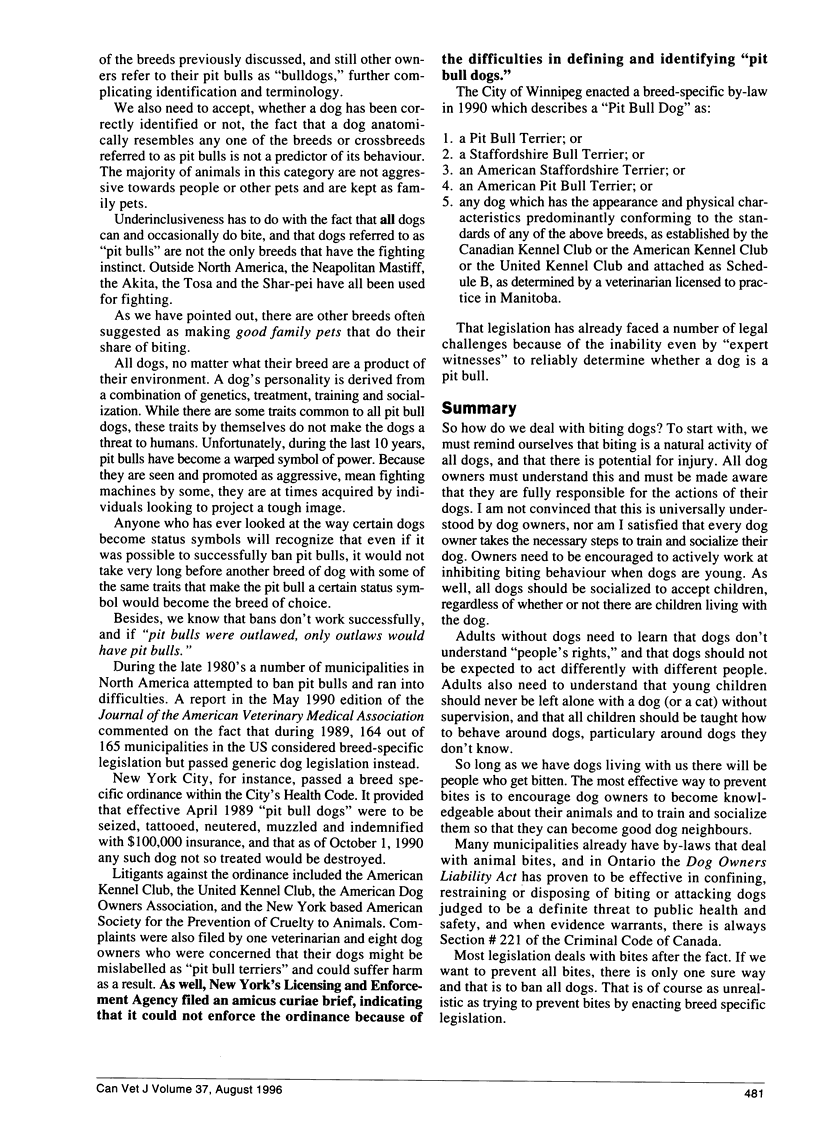Abstract
So how do we deal with biting dogs? To start with, we must remind ourselves that biting is a natural activity of all dogs, and that there is potential for injury. All dog owners must understand this and must be made aware that they are fully responsible for the actions of their dogs. I am not convinced that this is universally understood by dog owners, nor am I satisfied that every dog owner takes the necessary steps to train and socialize their dog. Owners need to be encouraged to actively work at inhibiting biting behaviour when dogs are young. As well, all dogs should be socialized to accept children, regardless of whether or not there are children living with the dog. Adults without dogs need to learn that dogs don't understand "people's rights," and that dogs should not be expected to act differently with different people. Adults also need to understand that young children should never be left alone with a dog (or a cat) without supervision, and that all children should be taught how to behave around dogs, particulary around dogs they don't know. So long as we have dogs living with us there will be people who get bitten. The most effective way to prevent bites is to encourage dog owners to become knowledgeable about their animals and to train and socialize them so that they can become good dog neighbours. Many municipalities already have by-laws that deal with animal bites, and in Ontario the Dog Owners Liability Act has proven to be effective in confining, restraining or disposing of biting or attacking dogs judged to be a definite threat to public health and safety, and when evidence warrants, there is always Section #221 of the Criminal Code of Canada. Most legislation deals with bites after the fact. If we want to prevent all bites, there is only one sure way and that is to ban all dogs. That is of course as unrealistic as trying to prevent bites by enacting breed specific legislation.
Full text
PDF





